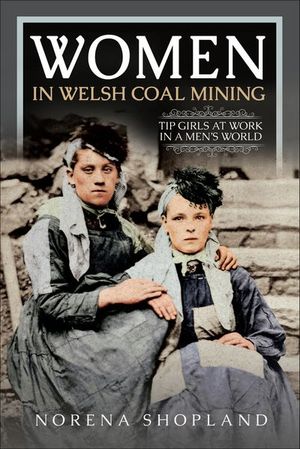Women in Welsh Coal Mining
Published by Pen & Sword Books
We tend to think of coal mining as predominantly a male occupation, with women confined to roles as wives and support workers. Women worked at the coal face for many years before they were banned in 1842. However, mere legislation was not going to stop them - many continued to work underground, with mine owners making little attempt to stop them due to the low wages paid to women. Some would dress and pass as men to fool visiting inspectors. For the majority though, they worked on the pit brow where they received the coal, cleaned, sorted and cut it to uniform size. Dirty, laborious work, including many accidents and deaths, done by women and girls, some as young as 10 years old.Society was appalled, and harshly criticized women (but not men) for working in such environments and so close to male workers. Find a respectable job, like domestic service, they were told - despite the fact that few jobs for women were available in such industrialized areas. Like the more famous Pit Brow Lasses of Lancashire, the Tip Girls were castigated for having ‘unsexed’ themselves, accused of immorality, of being unfit wives and mothers and society went on a mission to save them. But the Tip Girls did not want to be saved.For nearly a hundred years, these women fought society and Parliament to keep their jobs and clear their reputations. Norena Shopland tells their story for the first time. New research from census returns and newspaper accounts have uncovered over 1,500 named women who worked in the Welsh coalfields – only a few could be included in this book - but it shows how much more work is needed in order for us to continue to celebrate these remarkable women.
BUY NOW FROM
COMMUNITY REVIEWS

